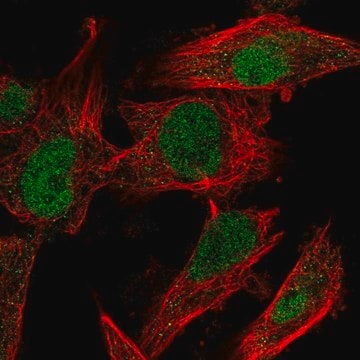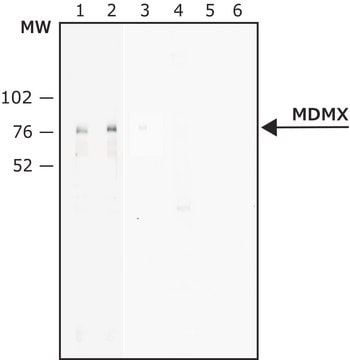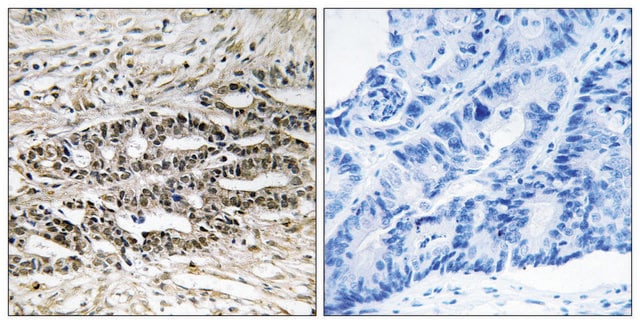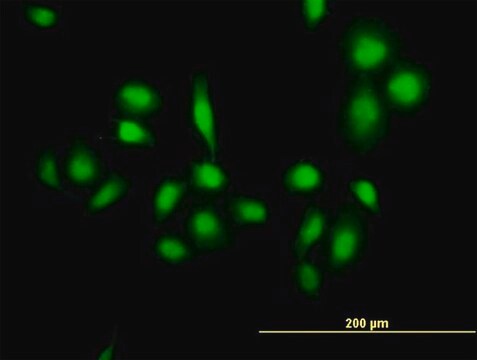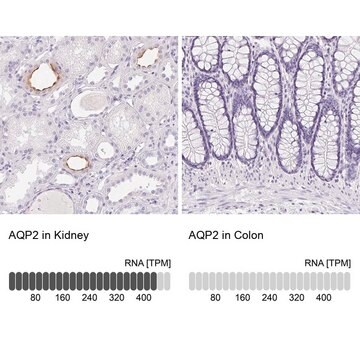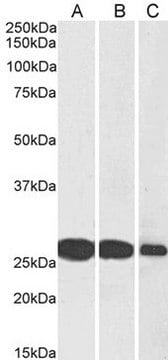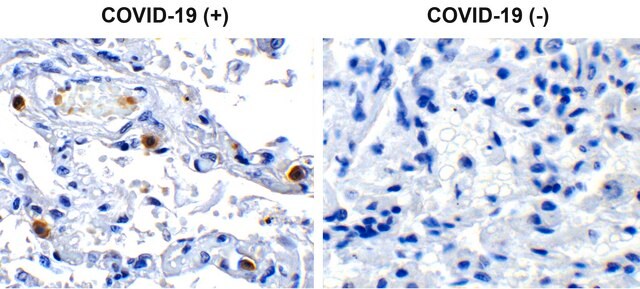04-1556
Anti-MDM4 Antibody, clone 7A8
clone 7A8, from mouse
Synonym(s):
Double minute 4 protein, MDM4-related protein 1, Mdm2-like p53-binding protein, Mdm4 p53 binding protein homolog (mouse), Mdm4, transformed 3T3 cell double minute 4, p53 binding
protein, Mdm4, transformed 3T3 cell double minute 4, p53 binding pr
About This Item
Recommended Products
biological source
mouse
Quality Level
antibody form
purified immunoglobulin
antibody product type
primary antibodies
clone
7A8, monoclonal
species reactivity
mouse, human
technique(s)
western blot: suitable
isotype
IgG2bκ
NCBI accession no.
UniProt accession no.
shipped in
wet ice
target post-translational modification
unmodified
Gene Information
human ... MDM4(4194)
mouse ... Mdm4(17248)
General description
Specificity
Immunogen
Application
Apoptosis & Cancer
Transcription Factors
Apoptosis - Additional
Quality
Western Blot Analysis: 0.5 µg/ml of this antibody detected MDM4 in 10 µg of HeLa cell lysate.
Target description
Physical form
Storage and Stability
Analysis Note
HeLa cell lysate
Other Notes
Disclaimer
Not finding the right product?
Try our Product Selector Tool.
Storage Class Code
12 - Non Combustible Liquids
WGK
WGK 1
Flash Point(F)
Not applicable
Flash Point(C)
Not applicable
Certificates of Analysis (COA)
Search for Certificates of Analysis (COA) by entering the products Lot/Batch Number. Lot and Batch Numbers can be found on a product’s label following the words ‘Lot’ or ‘Batch’.
Already Own This Product?
Find documentation for the products that you have recently purchased in the Document Library.
Our team of scientists has experience in all areas of research including Life Science, Material Science, Chemical Synthesis, Chromatography, Analytical and many others.
Contact Technical Service